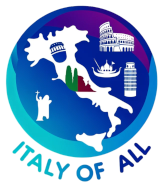The province of Livorno, located along the western coast of Tuscany, Italy, is renowned for its picturesque seaside, vibrant maritime history, and rich cultural heritage. The province encompasses a variety of landscapes, from the beautiful islands of the Tuscan Archipelago to the rolling hills and flat coastal plains.
Geographically, Livorno is characterized by its extensive coastline which includes major ports, rocky shores, and sandy beaches. The province’s notable geographical features include the islands of Elba, which is the largest in the Tuscan Archipelago, and other smaller islands like Capraia and Giglio. The region’s coastal areas are complemented by the inland hills, which are part of the traditional Tuscan landscape, known for their scenic beauty and agricultural productivity.
Historically, Livorno has a storied past that is deeply intertwined with its status as a major Mediterranean port. The city of Livorno itself was designed in the late Renaissance as an “ideal town” under the rule of the Medici family, who fostered religious tolerance and welcomed merchants from across the world, making it a cosmopolitan center. This history is reflected in the city’s layout, fortifications, and the Old Fortress that guards the harbor.
Culturally, Livorno has a unique identity within Tuscany, shaped by its history as a haven for people of diverse origins, including Greeks, Jews, Armenians, and others. This diversity has influenced its cultural and culinary traditions, making it a vibrant community with a rich mix of influences. The province is also known for its artistic contributions, particularly in painting and literature, with the Macchiaioli art movement of the 19th century being one of its highlights.
Cuisine in Livorno reflects its maritime heritage, with a strong emphasis on seafood. Local specialties include “cacciucco,” a famous seafood stew that embodies the essence of Livorno’s culinary tradition, and “pesce all’acqua pazza” (fish in crazy water). The surrounding countryside also contributes olive oil and wines, which are integral to the local diet and economy.
Economically, Livorno’s economy is heavily influenced by its port activities, which include shipping, commercial, and passenger services, particularly ferries connecting to the islands and other parts of the Mediterranean. Tourism is another critical sector, with the province’s beaches, historical sites, and culinary attractions drawing visitors. Additionally, agriculture and fishing continue to play important roles in the local economy.
Despite challenges such as economic diversification and environmental conservation, Livorno is actively working to leverage its cultural and natural assets to promote sustainable development. Efforts to enhance its tourism infrastructure and preserve its natural and historical sites are key to the province’s economic strategy.
Overall, the province of Livorno offers a compelling blend of natural beauty, historical depth, and cultural diversity. Its ongoing commitment to preserving its maritime heritage and promoting sustainable economic growth ensures its continued importance as a dynamic and attractive region in Tuscany.
Comuni in Livorno Province:
